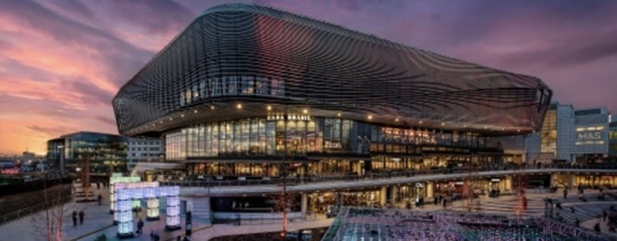Archived article
Please note that tax, investment, pension and ISA rules can change and the information and any views contained in this article may now be inaccurate.
Activist investor moves on Hammerson after M&A deals collapse

It’s never a dull day if you’re a shareholder in shopping centre owner Hammerson (HMSO). Following the rejection of a takeover offer and the collapse of a merger, the company has now attracted the attention of activist investor Elliott which has taken a 1.5% stake in the business.
We believe Elliott will put pressure on Hammerson to start selling assets, given the latter’s shares at 535.4p are trading 32% below the 790p published net asset value as of 31 March 2018.
Hammerson’s shares have been like a rollercoaster this year. Having declined earlier in 2018 as the market didn’t like its attempt to merge with Intu Properties (INTU), the shares shot up in March when French real estate investor Klepierre made a 635p takeover approach.
The shares fell back when the Klepierre offer was pulled but then started to rise when Hammerson scrapped its Intu merger plan. The stock nudged even higher on the Elliott investment news late last week.
Many observers think Hammerson has made the right call in walking away from the merger with Intu, but what will it take to drive a further re-rating of the shares? Asset sales could help this cause, but it is wise to sell assets in a depressed market?
Investment bank Liberum says it felt the execution risks regarding the Intu merger did not sufficiently justify the potential benefits or the opportunity cost of Hammerson’s capital. ‘As a result, we believe Hammerson’s decision to walk away from its proposed acquisition is the right outcome for the shares.’
However, it is no surprise that Intu described Hammerson’s rationale for withdrawing its support for the tie-up as ‘unsatisfactory’. The argument that there had been deterioration in market sentiment towards retail property since the turn of the year seems faulty.
The deal got a bad reception almost as soon as it was announced last December, and retail property has been out of favour for a lot longer than that. Perhaps the real catalyst was major shareholder APG, a Dutch pension group, explicitly stating its opposition to the deal.
Jefferies analyst Mike Prew says the position of Hammerson management ‘is untenable and facing a Martin Sorrell day of reckoning’.
Shareholders may be frustrated that management did not engage with Klepierre when they had the chance.
Whoever is in charge longer term will be at the helm of a business which has 50% of its portfolio outside the UK with a bias towards premium outlets which are displaying more robust growth than the wider market.
Yet Hammerson still faces headwinds from the pressures on the UK consumer and across the entire portfolio from the structural shift towards online shopping.
Jefferies’ Mike Prew sums up this latter challenge starkly: ‘The retail REITs increasingly look like 19th century candle stick makers and horse and buggy coachbuilders running scared of electricity and the motor car.’ (TS)
Important information:
These articles are provided by Shares magazine which is published by AJ Bell Media, a part of AJ Bell. Shares is not written by AJ Bell.
Shares is provided for your general information and use and is not a personal recommendation to invest. It is not intended to be relied upon by you in making or not making any investment decisions. The investments referred to in these articles will not be suitable for all investors. If in doubt please seek appropriate independent financial advice.
Investors acting on the information in these articles do so at their own risk and AJ Bell Media and its staff do not accept liability for losses suffered by investors as a result of their investment decisions.
Issue contents
Big News
- Eurozone relief... but for how long?
- Good week for the markets but setbacks for Reckitt and Clarkson
- Stadium purchase to accelerate TT Electronic’s profits scale
- Online isn’t necessarily the ticket to retail success
- Should shareholders get involved with Capita’s £701m rights issue?
- Fast growth vaping firm Supreme to float on the stock market

 magazine
magazine









